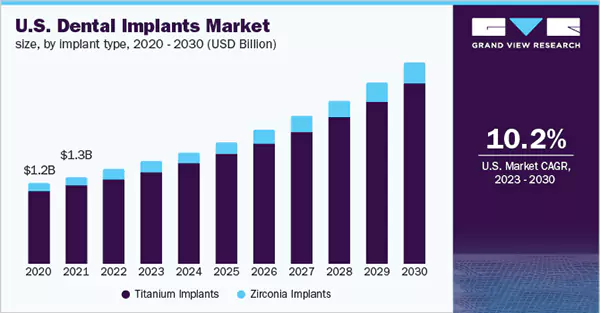How to Prepare for Dental Implant Surgery
Dental implants are something that is constantly shaping restorative dentistry. They are unquestionably a long-lasting solution for those who have missing teeth.
Implants are not just aesthetically appealing but are necessary to preserve your jawbone health and enhance chewing function.
Like other surgical procedures, preparation makes the process go smoother. Long story short, its success hinges significantly on preoperative preparation.
Dental implant surgeries are less invasive but still require a diligent approach.
Here, you can look at the practices to consider and multifaceted ways to proceed with the further procedure.
Towards the end, I believe you can approach your dental implant surgery with confidence.
Understanding the Procedure
A dental implant is a procedure for replacing an extracted tooth with a metal stud. At its core, the process includes placing a titanium post into the jawbone. With due course of time, it eventually fuses with the bone. This fusion provides a stable foundation for a replaced tooth.
Do You Know?:
A metal named “Titanium” is used in 92.45% of all American dental implants.
Keep in mind that the process might vary slightly. The reason could be the individual circumstances and the type of chosen implant.
The evaluation process often involves dental X-rays and 3D images to comprehend bone quality and quantity.
Doing this will ensure accurate placement and get an idea of whether one needs additional (like bone grafting) procedures or not.
Despite this, it entails several stages. However, the entire process will take several months to complete. The period consists of a consultation to the final crown fitting.
Physical Health Assessment
Before heading to surgery, the dentist first assesses your overall health. This is done to find out if you’re suitable for the procedure or not.
Physical health evaluation is decisive since medical conditions and habits can affect the success of the implant.
Let’s suppose, a patient with a chronic condition demands special consideration or adjustments. It may include patients struggling with diabetes and heart disease.
Likewise, if you are someone who has a habit of smoking. In such cases, smoking can impede healing, and you are supposed to make temporary and permanent changes in your lifestyle.
Also, it’s vital to be vocal about your medical history.
Consequently, it will guide the dentist to tailor a treatment plan accordingly that accounts for upcoming challenges or considerations.
Pre-Surgery Dental Work
To set the stage for success, a few preliminary procedures are mandatory.
Concerning, some patients have to go through bone grafting.

Statistics:
In 2022, the global dental implant market size was valued at USD 4.6 billion. In the upcoming years, from 2023 to 2030, it is estimated to grow at a compound annual growth rate (CAGR) of 9.8%.
Here, dentists transplant a piece of bone from another area of your body or use bone grafting material to bolster the jawbone.
The issue of adjacent teeth should be addressed which can include treatments like cleaning, filling, or even extraction in some cases
Dietary and Lifestyle Adjustments
Dietary habits play a vital role in the lead-up to and after the surgery.
A balanced diet rich in vitamins and minerals can boost healing post-operation.
Consuming soft food is a staple in the initial days to avoid straining the surgical site.

Include yogurt, soups, and smoothies in your diet plan, and eliminate the consumption of alcohol and tobacco.
As an outcome, it ensures optimal blood flow and reduces the risk of complications.
Financial and Logistical Planning
Dental implants can include a significant cost. One should consider discussing financial aspects in advance to make sure there are no surprises thereafter.
Clinics offer a variety of payment plans and financing options for patients to take advantage of.
Interesting Fact:
More than 150 million people are missing at least one tooth in the U.S.
Plan the budget accordingly and also ensure insurance coverage to mitigate some costs.
During my quest to collect details on the same, I came across My Dentist San Francisco. They are recognized as a leading dental practice in San Francisco that offers a myriad of treatments.
This team of experts is wealthy enough in terms of experience and commitment to patient care. They make sure patients visiting them achieve optimal results.
If you’re located in Sunnyvale, you might also want to explore services offered by Sunnyvale Dental Aesthetics Sunnyvale CA for high-quality care
Day-Before Preparations
The day before surgery preparations are influential in setting the tone for the procedure.
One might be prescribed antibiotics to be started a day before the surgery.
Interesting Fact:
Studies in the Journal of Oral Implantology reveal the success rate of dental implants is at 98%.
This is considered the preventative measure to ward off infections
Regardless, if you are someone who is undergoing IV sedation, then you’ll likely need to fast for 8–12 hours before.
Just keep on following your dentist’s guidelines regarding food and drink intake.
Further, rest is necessary to approach the surgery with a calm and positive mindset.
Mental and Emotional Preparedness
The idea of surgery itself scares a lot, in this context, mental and emotional readiness enhances your experience and boosts recovery.
Do you have any fears or concerns? Discuss it with the dentist or oral surgeon. You can get insights from them and demystify the process.
They can also provide relaxation techniques or sedation options.
You are open to meditating and practicing deep breathing which calms nerves, reduces anxiety, and encourages a sense of well-being.
Consider discussing any fears or concerns with your dentist or oral surgeon.
They can provide insights, demystify the process, and offer relaxation techniques or sedation options. Familiarity can often dispel fear.
Post-Op Care and Recovery

Once you are done with surgery, just focus on recovery and aftercare as it can expedite healing. Also, it is beneficial for the longevity of the implant.
Listen to what dentist guides regarding aftercare instructions which can include oral hygiene, dietary restrictions, and activity levels.
Remember swelling, discomfort, and bruising are common post-surgery.
These symptoms can be managed by pain relievers and prescribed meditations
Embrace the Journey with Confidence
Conclusively, dental implant surgery promises transformative results.
While it can be an intricate process, preparing both mentally and physically can position one for a smoother process and amp up recovery.
Just make sure to navigate this journey with enough knowledge and a positive mindset which eventually culminates in a restored smile and renewed confidence.








